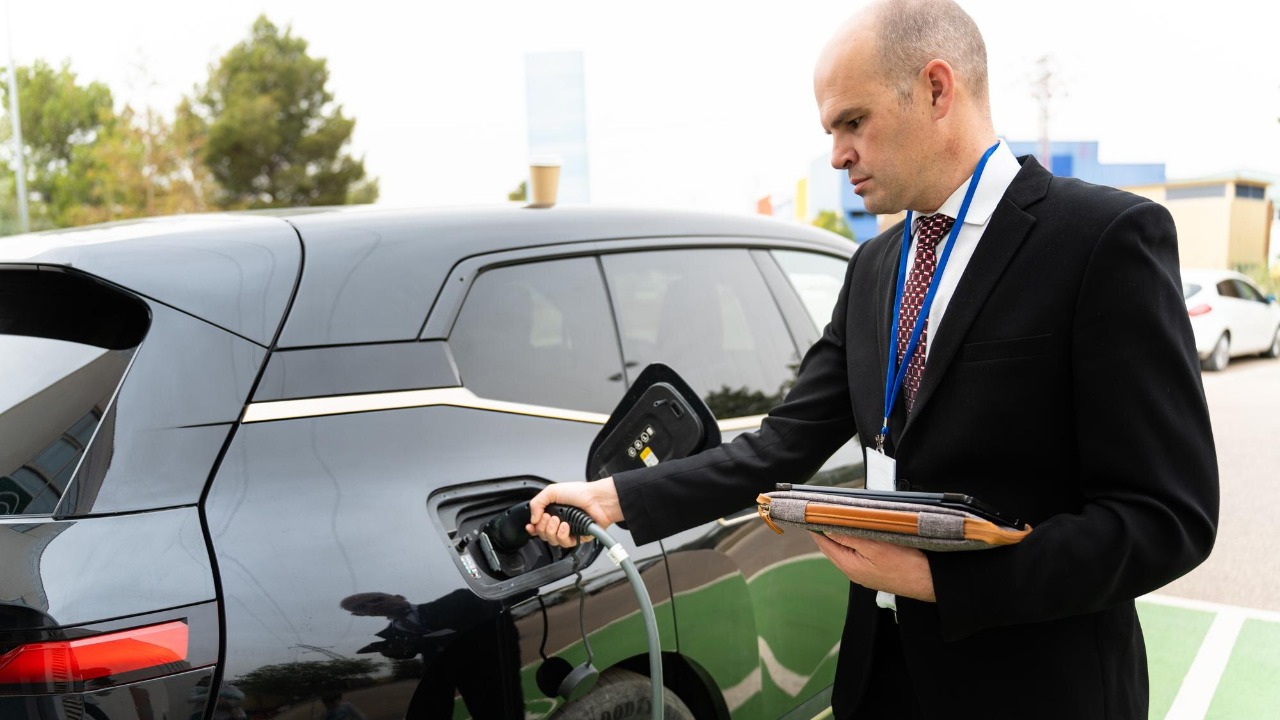As the U.S. grapples with the sustainability of its electric vehicle (EV) market, the crucial question arises: Can sales endure without the $7,500 federal tax credit? With the deadline for this tax credit fast approaching, EV sales have surged, reflecting the significant impact this financial boost has on consumer decisions. The potential phase-out of this credit raises concerns about the future viability of the market. Source, Source
The Role of the $7,500 Federal Tax Credit

The $7,500 federal tax credit has historically played a pivotal role in boosting EV sales in the U.S. This incentive has been a significant factor in making electric vehicles more affordable for consumers, thereby encouraging a shift away from traditional gasoline-powered cars. As the deadline for this tax credit approaches, there has been a noticeable surge in EV sales, with consumers eager to take advantage of the financial benefits before they potentially disappear. This rush underscores the credit’s importance in consumer purchasing decisions, highlighting its role as a catalyst for the current growth in the EV market. Source
The looming expiration of the tax credit has created a sense of urgency among potential EV buyers. Many consumers are accelerating their purchasing plans to ensure they benefit from the credit, which has been a significant driver of sales. This behavior indicates that the credit is not just a minor incentive but a crucial factor influencing consumer decisions. The surge in sales as the deadline approaches suggests that without this financial support, the EV market might face challenges in maintaining its current growth trajectory. Source
Beyond its immediate financial impact, the $7,500 federal tax credit has also played a symbolic role in the U.S. government’s commitment to reducing carbon emissions and promoting sustainable transportation. By making electric vehicles more accessible, the credit has helped to accelerate the adoption of cleaner technologies, contributing to broader environmental goals. The credit’s influence extends to encouraging innovation within the automotive industry, as manufacturers are incentivized to develop more efficient and affordable EV models to meet growing consumer demand. This dynamic has fostered a competitive market environment, driving advancements in battery technology and vehicle design that could have long-term benefits for the industry. Source
The Impact on Major Automakers

Major automakers, particularly Tesla, have strategically utilized the $7,500 federal tax credit to boost sales. Tesla, for instance, has been known to leverage this credit as a tool to enhance year-end sales figures, demonstrating its importance in the company’s sales strategy. The potential phase-out of this credit poses a significant challenge for automakers who have relied on it to maintain sales momentum. Without this incentive, companies may need to explore alternative strategies to sustain their sales figures. Source
The reliance on the tax credit is not unique to Tesla; many automakers have integrated it into their pricing and marketing strategies. The credit’s potential removal could disrupt these plans, forcing companies to reassess their approaches to pricing and consumer engagement. This situation highlights the broader implications of the credit’s phase-out, as it could lead to a reevaluation of how automakers position their EV offerings in a competitive market. Source
For automakers, the potential loss of the federal tax credit necessitates a strategic pivot. Companies may need to enhance their focus on cost reduction and efficiency improvements to maintain competitive pricing. This could involve investing in new manufacturing technologies or sourcing materials more sustainably to lower production costs. Additionally, automakers might explore partnerships with tech companies to integrate advanced features that appeal to tech-savvy consumers, thereby differentiating their products in a crowded market. The shift away from reliance on tax credits could also prompt automakers to expand their global market reach, seeking opportunities in regions with more favorable incentives or burgeoning demand for electric vehicles. Source
Consumer Behavior and Market Trends

The impending end of the federal tax credit has significantly influenced consumer behavior, driving a short-term surge in EV purchases. This urgency among consumers to capitalize on the financial benefit before it potentially disappears indicates a heavy reliance on such incentives. The current trend suggests that without the credit, there could be a notable decline in EV sales, impacting the market’s long-term stability. Source
Consumer reliance on financial incentives like the $7,500 tax credit raises questions about the sustainability of the EV market without such support. If the credit is withdrawn, the market may face challenges in maintaining its growth, as the financial burden on consumers increases. This potential shift in consumer behavior underscores the importance of developing alternative strategies to encourage EV adoption and ensure the market’s continued expansion. Source
In addition to financial incentives, consumer behavior is also influenced by broader trends such as environmental awareness and technological advancements. As more consumers prioritize sustainability, the demand for electric vehicles is likely to persist, albeit potentially at a slower pace without the tax credit. Automakers and policymakers alike must consider how to leverage these trends to maintain momentum in the EV market. This could involve enhancing consumer education about the long-term cost savings and environmental benefits of EV ownership, as well as improving the overall customer experience through better service and support networks. The integration of smart technology and connectivity features in EVs could also attract a new segment of tech-oriented buyers, further diversifying the market. Source
Policy Implications and Future Outlook

The future of the $7,500 federal tax credit remains uncertain, raising important questions about government policy and support for the EV sector. Policymakers face the challenge of balancing the need to promote electric mobility with the financial implications of continuing such incentives. The potential phase-out of the credit could prompt a reevaluation of government strategies to support the EV market, emphasizing the need for sustainable growth models that do not rely heavily on financial incentives. Source
As the EV market evolves, policymakers must consider alternative strategies to sustain growth and encourage the transition to electric mobility. This could involve investing in infrastructure, such as charging stations, or offering other forms of support to make EVs more accessible to a broader range of consumers. The future of the EV market will likely depend on a combination of innovative policy measures and industry efforts to adapt to changing consumer needs and market conditions. Source